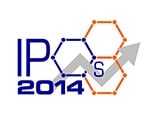 Coherus Medical, a biotech developing knockoffs of some of the world's top-selling treatments, is plotting an $86 million IPO to bankroll its late-stage R&D work.
Coherus Medical, a biotech developing knockoffs of some of the world's top-selling treatments, is plotting an $86 million IPO to bankroll its late-stage R&D work.
The company, founded in 2010, is targeting three blockbuster biologics it believes will pull in nearly $30 billion combined by 2017, seeking an IPO to pay its way through clinical development as biosimilars near their U.S. landfall. The biotech plans to trade on the Nasdaq under "CHRS."
Leading Coherus' pipeline is a Phase III version of Amgen's ($AMGN) blockbuster biologic Enbrel, testing the biosimilar in rheumatoid arthritis and psoriasis. Baxter ($BAX) bought into that program earlier this year, paying up to $246 million for commercial rights in Europe, Canada, Brazil and other markets, while Daiichi Sankyo controls the drug's Japanese future via an earlier deal. Coherus retains stateside rights to the injection.
The biotech is also at work on a Phase I copy of AbbVie's ($ABBV) top-selling Humira, planning to start late-stage trials next year and file in the U.S. in 2016. Lastly, Coherus has a Phase I program developing a take on Amgen's Neulasta, a white blood cell-bolstering treatment.
Meanwhile, thanks to changing regulations and a looming biotech patent cliff, the global market for biosimilars is poised to boom. According to a report from Allied Marketing Research, worldwide sales for copycat biologics will reach $35 billion by 2020 after scraping together just $1.3 billion last year, as blockbusters like Humira and Remicade lose exclusivity.
Coherus believes it has designed its business to maximize the potential of its biosimilar candidates. Each of the company's chosen treatments competes in indications with low mortality risk and thus a high potential uptake for biosimilar competition, Coherus said, and the biotech touts its process science and formulation technology as best in class.
Whether that story will resonate with investors battered by recent volatility in biotech remains to be seen. Since the early days of 2014, when scores of drug developers pocketed billions and swung as many as 10 debuts a week, things have tightened up, with Wall Street increasingly wary of risky biotech startups. Many IPO hopefuls have had to put off or cancel their offerings altogether, while others have been forced to accept deep discounts to get the listings they desire.
At the same time, companies with differentiated assets and clear paths to market are still pulling off sizable offerings, including last week's $97 million debut from Tokai Pharmaceuticals ($TKAI) and recent successes from Sage Therapeutics ($SAGE), Zafgen ($ZFGN) and Kite Pharma ($KITE).
- read the S-1